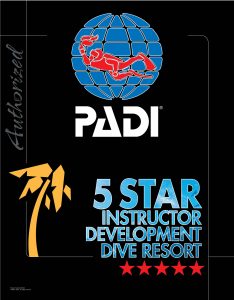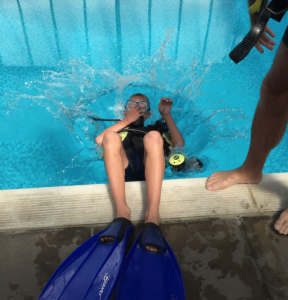LEARN TO DIVE: Essential Steps for Beginner Scuba Divers Are you ready to embark on…

How to learn scuba diving with an Open Water Diver course
Learn to dive for Marine Conservation
Diving is not only a great outdoor sport but also allows you to get involved with marine conservation. Simply, if you learn scuba diving, you can explore our amazing underwater world. Divers say that the experience of being in this unique environment gives a sense of tranquility. But at the same time, it provides adventure and adrenaline.
Our marine conservation project offers the chance to learn scuba diving in the tropical setting of the beautiful Perhentian Islands. It takes about a week to become a qualified diver. Then you can join the marine research team. Their goal is to protect the ocean and save marine animals such as sea turtles and their feeding grounds. So your marine volunteering experience will allow you to make a difference for marine life. PLUS, you gain a life-long diving qualification!
Why should I get a diving certification?
 Scuba diving is a technical sport. Moreover, like all sport, it does involve some risks. So it is best to be properly trained and prepared. Additionally, you will have a more rewarding underwater experience, as recommended by the world’s leading divers’ organisation PADI, the Professional Association of Diving Instructors. PADI offers the best-known and most popular diving qualification in the world: the Open Water Diver (OWD) certification.
Scuba diving is a technical sport. Moreover, like all sport, it does involve some risks. So it is best to be properly trained and prepared. Additionally, you will have a more rewarding underwater experience, as recommended by the world’s leading divers’ organisation PADI, the Professional Association of Diving Instructors. PADI offers the best-known and most popular diving qualification in the world: the Open Water Diver (OWD) certification.
We have teamed up with our diving partner iDiveteam, a PADI 5 star instructor dive school in Berkshire (UK). In this way, we can help you decide what is the best method and location to start your Open Water Diver course.
How to enrol and complete the PADI Open Water Diver course?
With the PADI OWD course, you will be trained to a maximum depth of 18 metres (60 feet). The OWD course consists of three main parts:
- Knowledge Development: online, independent study or in a classroom
This is the study part of the course explaining all the principles and terms you need to know for your safety and enjoyment. You can study online, independently or in a classroom. Many students prefer to study online, so that all the quizzes and exams are done before getting into the water. - Confined Water Dives
Normally it takes 1 day to complete this first water session to practice your scuba skills. An instructor will assist you and also check your knowledge and water skills.
- Open Water dives for full certification
With parts 1 and 2, you will have done the so-called ‘Referral’ part of your OWD course: the theory and water training. Your PADI instructor can provide you with paperwork to confirm that you have completed the ‘Referral’ part. Then you have the choice to do your 4 required Open Water dives anywhere in the world. You may choose to do them with the same dive instructor locally. Alternatively, you can do them at any PADI dive centre worldwide. So, this allows you to complete your OWD certification with our dive team on the fabulous Perhentian Islands.
Alternatively, you can start from scratch when you volunteer with us: your OWD course will take about one week. Then you can join the marine research activities.
Course requirements
- You must be 10 years or older
- Able to swim
- Medically fit for diving
(Download a medical form here to answer all the medical questions)
Pricing
Part 1: e-Learning online: £155
Part 2: For UK-based learners, our dive partner idiveteam offers a special price of
£199 per person
for the referral part of the WWD course: This covers all the theory + confined water training in a private pool and personal instructor. You have complete flexibility with dates and learn at your own pace.
Part 3: Open Water dives (4 total)
If you wish to complete this part of the course in the UK, then it can be done over a weekend: 2 dives on Saturday and 2 dives on Sunday. Mid-week dates are also available. The cost for this would be
£195 per person *
*Minimum of 2 students for 2 full days at a local lake repeating the skills learned in the pool. The cost includes weekend training, use of equipment and wet suits and certification.




